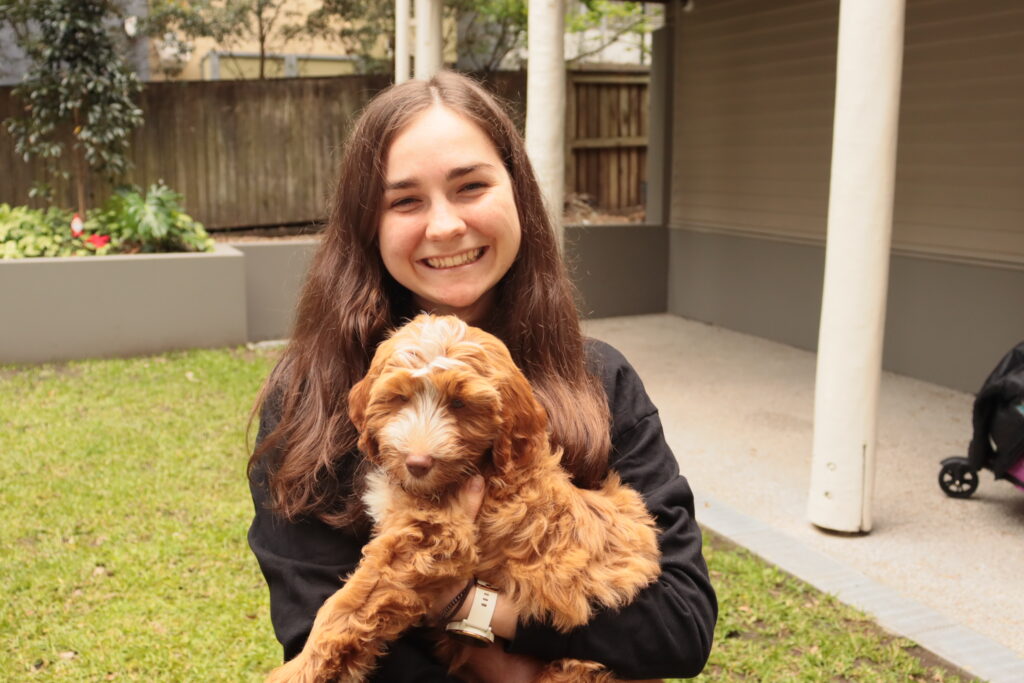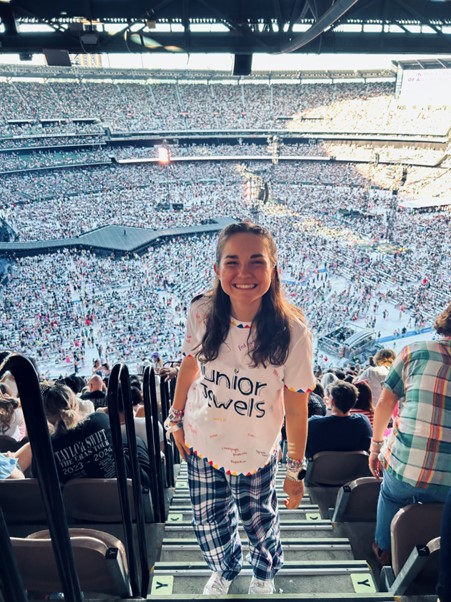A Crohn’s diagnosis at age 15: Aiyahna’s Story

Aiyahna’s journey with Crohn’s Disease began when she was just 15 years old. Unlike many Crohn’s sufferers (where finding an answer can sometimes take years), her diagnosis happened quickly following the discovery of a fistula that had tunnelled its way through the wall of her colon, as well as ulceration and inflammation throughout the entirety of her digestive tract.
Diagnosis
Aiyahna was fortunate to be diagnosed when she was, as a Gastroenterologist happened to be flying into her hometown of Longreach, Queensland. He performed a colonoscopy and upon seeing the results, he had her flown to Brisbane the following day to have further tests.
Prior to being diagnosed, Aiyahna experienced intermittent symptoms like mouth ulcers, exhaustion, occasional nausea, emotional overwhelm and digestive disturbances. Both Aiyahna and her parents chalked these up to being due to the stress of her transition into senior high school. Aiyahna says, “In hindsight, we weren’t wrong – as stress is most definitely an environmental trigger for Crohn’s episodes and symptoms – we just weren’t aware that an auto-immune disease was the underlying cause of those symptoms.”
Treatment
Following her diagnosis, Aiyahna had an extended stay in hospital, which was followed by two months of exclusive nasal gastric (NG) feeding. As a 15-year-old, already going through the trials and tribulations of adolescence, Aiyahna says having to feed herself through a tube was “pretty embarrassing and awkward at times” but that she was thankful for the support of her family, her school and her peers.
“I went to a small school in Longreach. Having already been through the isolation of COVID and a stay in hospital, I decided I wanted to go back to school despite having to feed myself through a tube. My school was very supportive. They gave me a key to the library, which had a kitchen where I could go and feed myself in privacy.”
Despite choosing to attend school during this period, Aiyahna could often only attend for half days as the fatigue of Crohn’s would overwhelm her. Not only that, but attending treatment sessions meant missing days of school at a time.
Aiyahna was treated through regular infliximab infusions (supported by daily medications) to help her body progress into remission. She continues with her infliximab infusion treatment regime four years on and is grateful to have maintained remission during this time. At the end of 2023, she was able to stop taking her daily medications.

Life with Crohn’s disease
When we asked Aiyahna what advice she would give to any young people living with IBD she said, “A lot of the time, we’re told that having IBD will be a barrier or that it will make things too hard. I don’t believe that. Yes, of course, things will be hard, but we can still achieve our dreams. It’s not about putting pressure on yourself, it’s just about being willing to give things a crack. And I actually believe that having Crohn’s Disease has taught me more than it’s taken away from me. I’ve become a stronger, more confident person because of it.”
This sense of optimism and determination is clear in Aiyahna. Even during our chat, she’s in her uni library studying. Despite the extensive interruptions to her education and the challenges she’s faced over the last few years, she has moved to Brisbane where she’s studying at the University of Queensland to become a psychologist.
Aiyahna is grateful for the support she has had from her family throughout her diagnosis. When her mum spoke about the challenges of her daughter being diagnosed with Crohn’s Disease, she said, “I realised that it was not my job to clear the obstacles for her, to smooth her path, nor to give her the answers but rather, my job was to guide her to look for the possibilities within the struggle, to remind her to focus on her strengths and to use them to negotiate the obstacles she encounters.”
In June 2023, Aiyahna transitioned from the paediatric healthcare system into the adult healthcare system. She’s currently in conversation with her doctor about switching to self-injections for her infliximab and says the transition has given her more decision-making control over her treatment plan and ultimately more flexibility and independence in her life.
Aiyahna says, “Living with Crohn’s can feel like riding a rollercoaster at times. Starting with a huge uphill climb as our bodies recover, followed by enormous drops as we realise that our lives have to change, moments when we feel like we are flying upwards as we regain momentum in life and then those moments of coasting as we adjust to our new normal. However, I have found that around every corner there is a lesson learned and a strength found, empowering us from within and shaping the people we are yet to become.”
To learn more about Crohn’s disease or to support the work of Crohn’s and Colitis Australia, which provides a wide range of programs and advice to those living with IBD, visit https://crohnsandcolitis.org.au.